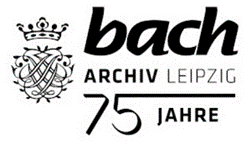»The young Bach«
Conference »The young Johann Sebastian Bach and music culture in Thuringia in the early 18th century«
Programme and abstracts of the conference
Konferenz-Mitschnitt im Youtube-Channel des Bach-Archivs
You can watch the conference (mostly in German) in a YouTube livestream.
off
